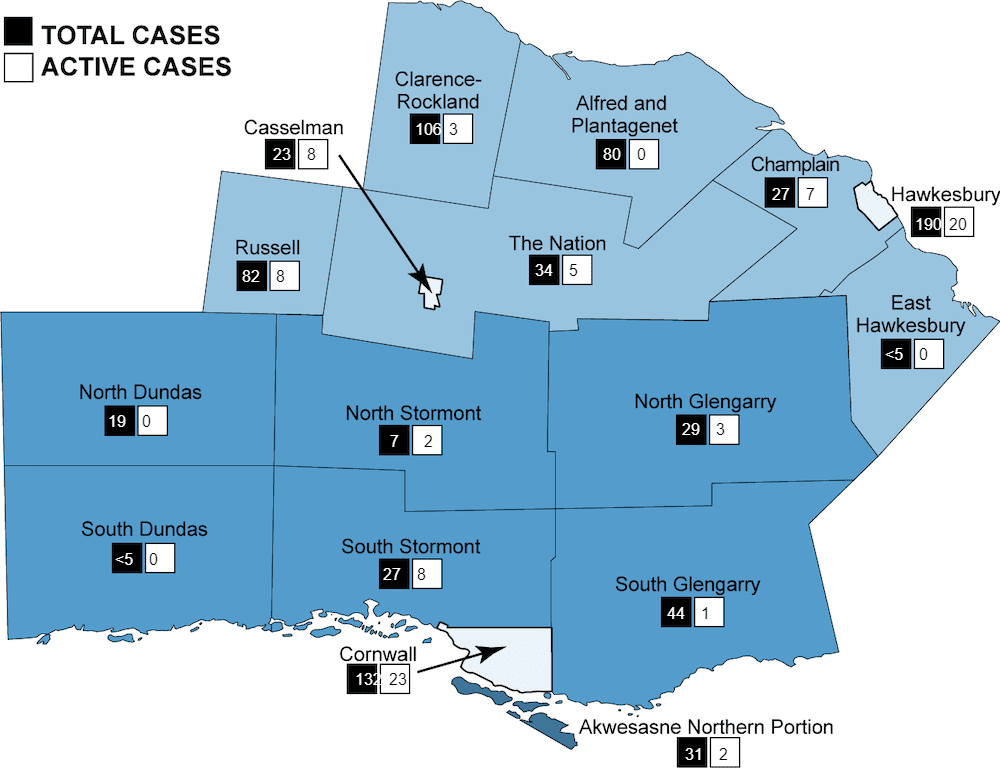
North Dundas continues to be only lightly affected by the pandemic sweeping the world. Since covid-19 was first reported in the Eastern Ontario Health Unit [EOHU] region, there have been a total of 835 confirmed cases, with 31 deaths resulting. In all, 714 cases had been resolved. North Dundas has had a total of 19 confirmed cases to date, one of the lowest number in the EOHU area.
The EOHU covers the Stormont, Dundas, Glengarry area, Prescott-Russell, Cornwall, Hawkesbury, and the Akwesasne Northern Portion.
At the end of November, there were no active cases in North Dundas. The number for the EOHU was 90, with four people hospitalised, though none of them were in intensive care units. Another very positive sign is that the rolling 7-day average in the United Counties of Stormont, Dundas & Glengarry is the lowest in the region. The curve, as it is said, has been flat for some time.
Of all cases of covid-19 in the EOHU, 57% were female and 43% male, and the age group of confirmed cases was not what we were originally told to expect. Rather than finding the majority of cases being experienced in the over-65 age range, only 23% of those with a confirmed case of covid-19 were in that category. Instead, by far the majority of cases were aged between 20 and 64: 31% in the 20-39 age group, and 34% between 40 and 64. These figures exclude the City of Cornwall.
For SDG, the worst affected areas are South and North Glengarry, South Stormont, and the urban areas of Cornwall, Hawkesbury, and Casselman. Cornwall has had 132 confirmed cases, 23 of them active at the end of November. Hawkesbury has suffered even more, with a total of 190 cases, 20 of which were active on November 28.
The Medical Officer of Health for the EOHU, Dr. Paul Remouliotis, has encouraged residents to keep up the good work that has led to this relatively successful campaign in North Dundas, and to be careful over the Christmas and New Year’s season not to let our collective guard down. It is a time when people are used to travel, to visiting family and friends, and to gather in large groups to celebrate together. With a vaccine on the horizon, it may be well worth sacrificing something of a traditional Christmas in order to push through to happier days.


